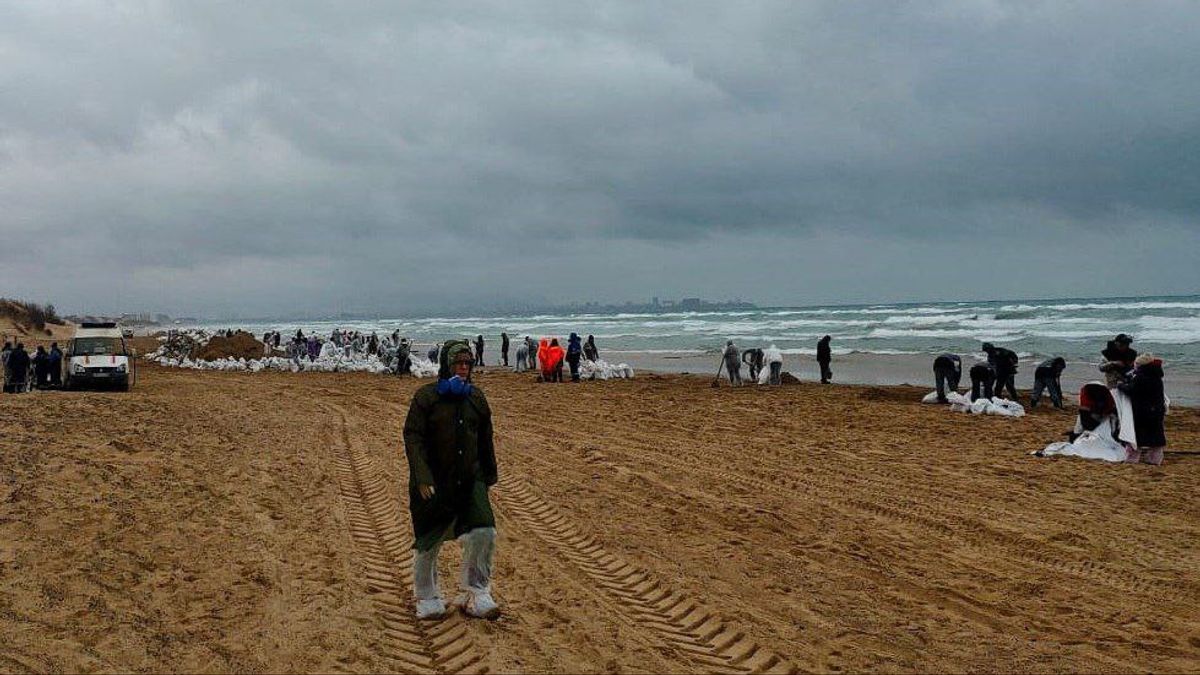JAKARTA - Russia declared a regional emergency in Crimea on Saturday, January 4, 2025, which it seized from Ukraine in 2014.
Workers cleaned tons of contaminated sand and soil on both sides of the Kerch Strait after an oil spill in the Black Sea last month.
Mikhail Razvozhaev, governor of Russia's inaugurated peninsula, said new traces of small pollution required immediate countermeasures and declared a state of emergency in the city of Sevastopol.
It gives the authorities more power to make quick decisions such as ordering citizens to flee their homes.
The Kerch Strait stretches between the Black Sea and the Azov Sea and separates the Kerch Peninsula in Crimea from the Krasnodar region of Russia.
Russia's Ministry of Emergency reported on Saturday that rescue workers had now cleared more than 86,000 tons of contaminated sand and soil.
SEE ALSO:
The oil leaked from two old tankers that were hit by a storm on December 15, 2024. One sank and the other ran aground.
More than 10,000 people have been working to secopy thick, fouled oil fuel from sandy beaches around Anapa, a summer resort. Environmental groups have reported the deaths of dolphins, pesut fish, and seabirds.
The Emergencies Ministry told the Telegram messaging app that oil-polluted soil had been collected in the more extensive Kuban region of Russia and Crimea, whose annexation by Russia has not been recognized by most other countries.
The ministry published video footage of dozens of workers wearing protective clothing loading a ground bag and others cupping the soil.
Meanwhile, Russia's Transport Ministry said this week experts had determined that about 2,400 tonnes of oil products had spilled into the sea, a smaller spill than previously feared.
When the disaster hit, state media reported that the tankers hit by the disaster, both of whom were over 50 years old, carried about 9,200 tons (62,000 barrels) of oil products in total.
The spill involved a weight oil fuel of M100 quality frozen at temperatures of 25 degrees Celsius (77 degrees Fahrenheit) and, unlike other oil products, did not float to the surface, but sank to the bottom or remained suspended in the water column.
The English, Chinese, Japanese, Arabic, and French versions are automatically generated by the AI. So there may still be inaccuracies in translating, please always see Indonesian as our main language. (system supported by DigitalSiber.id)
















